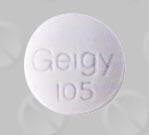Brethine Disease Interactions
There are 4 disease interactions with Brethine (terbutaline).
Beta- 2 adrenergic bronchodilators (applies to Brethine) cardiovascular
Moderate Potential Hazard, High plausibility. Applicable conditions: Heart Disease, Hypertension, Hyperthyroidism
Adrenergic bronchodilators can stimulate cardiovascular beta- 1 and beta- 2 receptors, resulting in adverse effects such as tachycardia, palpitation, peripheral vasodilation, blood pressure changes, and ECG changes (e.g., flattening of the T wave; prolongation of the QT interval; ST segment depression). Direct stimulation of cardiac tissues is mediated by beta- 1 receptors and thus less likely to occur with beta-2-selective agents such as albuterol. However, beta-2-selectivity is not absolute and can be lost with larger doses. High dosages of these agents have been associated with precipitation or aggravation of angina, myocardial ischemia, and cardiac arrhythmias. Therapy with adrenergic bronchodilators should be administered cautiously in patients with sensitivity to sympathomimetic amines, hyperthyroidism, and/or underlying cardiovascular disorders such as coronary insufficiency, cardiac arrhythmias, or hypertension. The recommended dosages should not be exceeded.
Beta- 2 adrenergic bronchodilators (applies to Brethine) diabetes
Moderate Potential Hazard, Moderate plausibility. Applicable conditions: Diabetes Mellitus
Adrenergic bronchodilators may cause increases in blood glucose concentrations. These effects are usually transient and slight, but may be significant with dosages higher than those normally recommended. Large doses of IV albuterol (not commercially available in the U.S.) and terbutaline sulfate have been reported to cause exacerbation of preexisting diabetes mellitus and ketoacidosis. Therapy with adrenergic bronchodilators should be administered cautiously in patients with diabetes mellitus. Closer monitoring of blood glucose concentrations may be appropriate. Systemic adverse effects are minimized, but not abolished, by administration of these agents via oral inhalation.
Beta- 2 adrenergic bronchodilators (applies to Brethine) hypokalemia
Moderate Potential Hazard, Moderate plausibility.
Adrenergic bronchodilators may cause decreases in serum potassium concentrations, primarily when given by nebulization or intravenous administration. Although this effect is usually transient and does not require supplementation, clinically significant hypokalemia may occur in some patients, with the potential to induce cardiovascular adverse effects. The relevance of these observations to oral or oral aerosol/powder for inhalation therapy is unknown. Therapy with adrenergic bronchodilators should be administered cautiously in patients with or predisposed to hypokalemia.
Beta- 2 adrenergic bronchodilators (applies to Brethine) seizures
Moderate Potential Hazard, Moderate plausibility.
Adrenergic bronchodilators may cause CNS stimulation. Therapy with adrenergic bronchodilators should be administered cautiously in patients with seizure disorders. Systemic adverse effects are minimized, but not abolished, by administration of these agents via oral inhalation.
Brethine drug interactions
There are 428 drug interactions with Brethine (terbutaline).
Brethine alcohol/food interactions
There are 2 alcohol/food interactions with Brethine (terbutaline).
More about Brethine (terbutaline)
- Brethine consumer information
- Check interactions
- Compare alternatives
- Reviews (4)
- Drug images
- Side effects
- Dosage information
- During pregnancy
- Generic availability
- Drug class: adrenergic bronchodilators
- Breastfeeding
Related treatment guides
Drug Interaction Classification
| Highly clinically significant. Avoid combinations; the risk of the interaction outweighs the benefit. | |
| Moderately clinically significant. Usually avoid combinations; use it only under special circumstances. | |
| Minimally clinically significant. Minimize risk; assess risk and consider an alternative drug, take steps to circumvent the interaction risk and/or institute a monitoring plan. | |
| No interaction information available. |
Further information
Always consult your healthcare provider to ensure the information displayed on this page applies to your personal circumstances.


